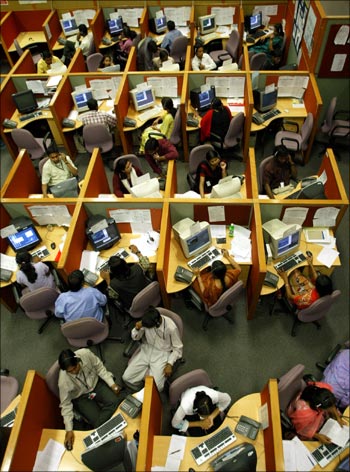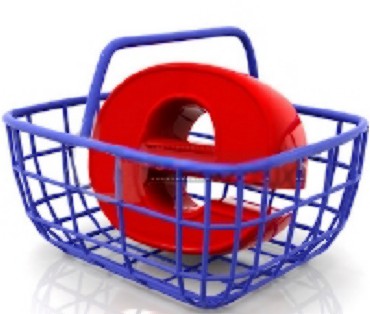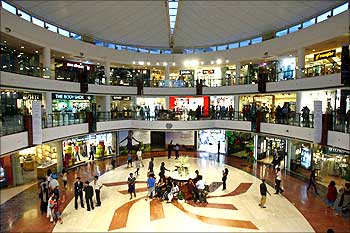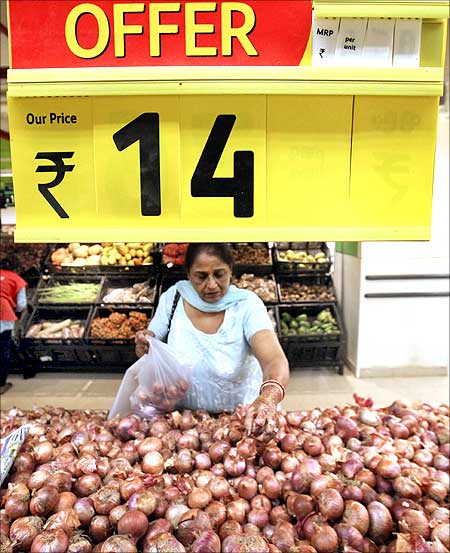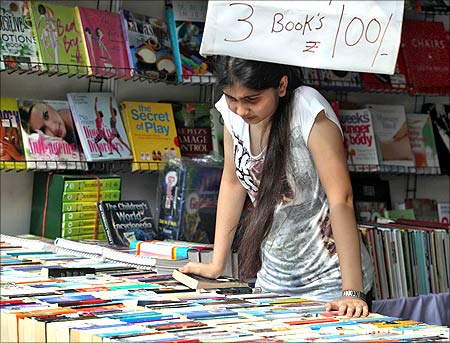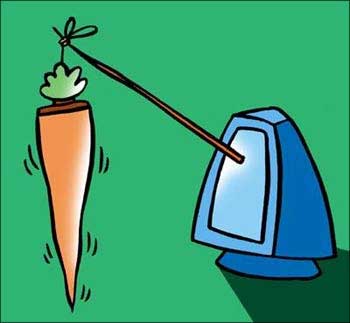 | « Back to article | Print this article |
Watch out retail giants! Online majors aim for the sky
Foreign direct investment in multi-brand retail may have turned into a hot potato for the UPA government, forcing it to put the reformist decision on hold, but industry gurus now say online commerce would pose a bigger challenge than FDI for traditional retail in India.
And, why not? Online books major, Flipkart, is aiming to be the biggest retailer in India. Travel portals are already doing a third of the total domestic flight bookings, and the biggies agree that online retail in this category will be on a par with offline within 10 years.
A start-up online jewellery outlet now targets a turnover of Rs 100 crore (Rs 1 billion) within 12 to 15 months of launch.
All this, perhaps, prompted Arvind Singhal, founder and chairman of Technopak Advisors, to call online shopping -- in an interview to Business Standard -- the biggest disruptive force for organised retail in India.
Click NEXT to read on . . .
Watch out retail giants, online majors aim for the sky
He cited the closure of 4,000 megastores in the United Kingdom over the past seven months due to the growth of e-commerce.
In fact, experts are drawing analogies between the huge uptake in mobile telephony after 2000 and the current e-commerce rush in India.
If Indians flipped for the mobile phone sometime middle of the last decade and LCD TV soon after, they are now shopping online like there's no tomorrow.
The numbers are already telling quite a story. From $8 billion (Rs 40,000 crore) in 2010, the Indian non-store market is set to touch over $11.5 billion (Rs 57,500 crore (Rs 575 billion)) by the end of this year, according to industry math.
Click NEXT to read on . . .
Watch out retail giants, online majors aim for the sky
Data from Technopak Advisors show that 85 per cent of the non-store market constitutes e-commerce transactions, 10 per cent direct selling and around two per cent tele-shopping.
Some industry estimates suggest that the e-commerce market has already ballooned to as much as $15 billion (Rs 75,000 crore) in India. The overall retail market in India is estimated at around $500 billion (Rs 25 lakh crore).
Noticing the over 40 per cent growth in the e-commerce market in the country, the industry leaders in online travel, leisure, books, apparel, jewellery, and accessories are showcasing statistics to back their theory that digital buying and e-shopping are set to take over the space so far occupied by traditional retail.
They are citing the internet, broadband and mobile telephony subscriber numbers in the country as potential enablers.
Click NEXT to read on . . .
Watch out retail giants, online majors aim for the sky
There are 100 million internet users, 12.98 million broadband connections and 881.40 million mobile phone customers, many of whom are 3G-enabled and, therefore, an ideal target group for online shopping on handsets.
The total number of users transacting online in India is set to increase to 39 million by 2015, from 8-10 million at present, show industry data.
A Technopak analysis has found that 50 to 60 per cent of the financial services and leisure & travel market will constitute online transactions by the year 2025.
In the case of communication, e-transaction will have a 20 to 25 per cent share, followed by merchandise sales at 12 to 14 per cent, and healthcare, education and entertainment ending up in a tie at 10 to 12 per cent.
Click NEXT to read on . . .
Watch out retail giants, online majors aim for the sky
Sunjay Guleria, co-founder and CEO, Exclusively.in, an online clothes and accessory retailer, explained why India was a fast adopter of technology. While the switch from landline to mobile phone was gradual in the US, in India it was straight on to cellphone for many thousands.
"In India, mobile uptake was much quicker as access to landline was limited due to poor infrastructure." That story is being repeated in e-commerce, Guleria says.
Around 25 per cent of the total retail market in the country is tipped to be the e-commerce share in the next 10 to 15 years, compared to a negligible pie.
Data from international research firm, comScore, show that the Indian Railways was the most visited travel destination, with 8.4 million visitors a year, on last count. Other travel sites such as MakeMyTrip, Yatra Online and ClearTrip also scored high.
Click NEXT to read on . . .
Watch out retail giants, online majors aim for the sky
Deep Kalra, founder and CEO of MakeMyTrip, says: "If you only consider the organised sector, it's possible we will achieve the 'tipping point' in a decade from now." While broadband internet penetration would grow manifold in this period, offline retail would be more difficult due to pressure on labour costs, Kalra adds.
Check out the figures. Over a third of all domestic air tickets are already bought online, and that's with just 8 per cent internet penetration and only 1 per cent broadband penetration, Kalra points out.
Hotel is a much smaller market and has just started to move online, over last year or so. While the current online hotel bookings are estimated at 1 to 2 per cent of the total, railways e-bookings account for around 20 per cent, he adds.
Cleartrip, another travel site, is gung-ho about online transactions. Noel Swain, executive vice-president, supplier relations, Cleartrip, is enthused.
Click NEXT to read on . . .
Watch out retail giants, online majors aim for the sky
"He says: Over the next 10 years, online retail in travel will be on a par with offline travel retail."
Sachin Bansal, co-founder and CEO of online book store, Flipkart, argues: "Online stores have millions of products that are not available with even the biggest offline book store."
The online business model has lower overheads, which generally means better prices in the form of discounts, he explains. "Our aim is to redefine the e-commerce ecosystem in India and become the largest retailer -- both in the online and offline space," he adds.
In what could be seen as a sign of e-commerce evolving in India, people are even buying spectacles over the net by checking out the feel and look of the glasses on a virtual mirror!
Click NEXT to read on . . .
Watch out retail giants, online majors aim for the sky
Peyush Bansal, Founder and CEO, Lenkart.com, lists buying spectacle online as among the surprise trends in the young industry. Lenkart has grown 300 per cent from last year.
For most categories, online would be at least 10 per cent of the total retail market in 3 to 5 years, he says, adding, for a few categories, it would be more.
Gaurav Issar, director, Jewelsnext.com, says his site was witnessing around 25 transactions daily within two months of the launch at an average ticket value of Rs 20,000.
"We are aiming at a turnover of Rs 100 crore within 12-15 months of launch," he says.

